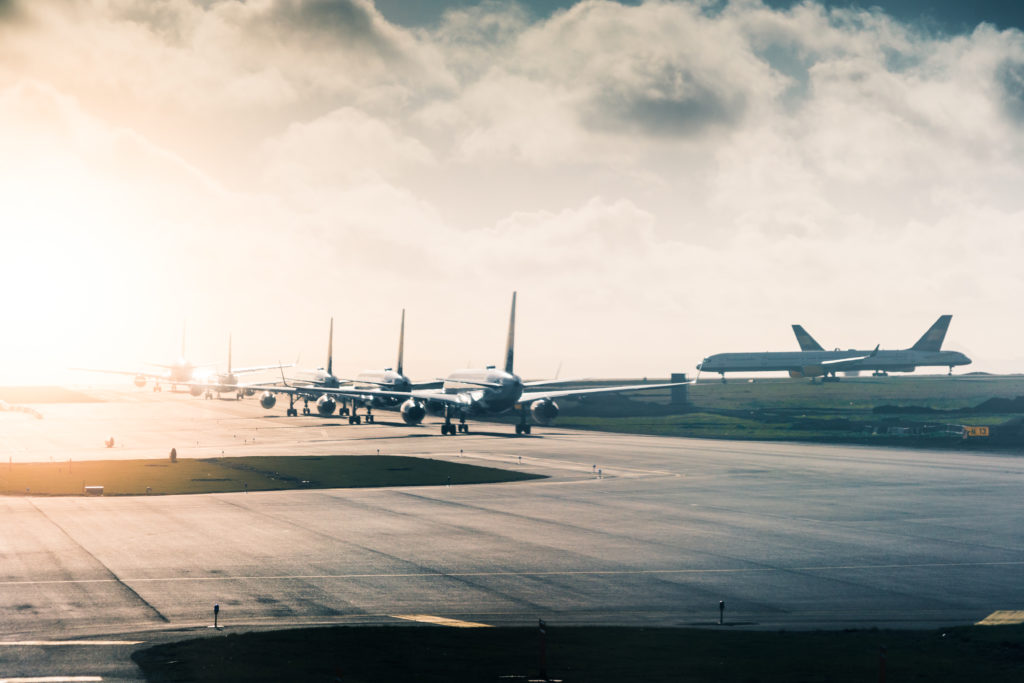
A strong economy and emerging technologies have resulted in steady growth in the travel industry for a decade.From 2009 to 2017, US hotel gross bookings grew from $116 billion to $185 billion. The positive, post-recession progress will likely continue this year, although not without modification and challenge.A new report from The Deloitte Center for Industry Insights takes a look at what’s ahead for the travel industry in 2019. Here are the major takeaways.

Hospitality: Growth may slow, Airbnb lurks, experiences sell
- The hotel and resort industry has sustained positive growth since 2009. The growth spurt may soften based on the economy and competition, but still has “legs” according to the report. The Average Daily Rate (ADR) and Revenue Per Available Room (RevPAR) slipped slightly at the end of 2018 but only about 25% of the industry experienced a downturn.
- Branded hotels and resorts need to be aware of the competition from Airbnb and other private rentals. Private home rentals have changed the market since so many people are renting out bedrooms in their homes. Other investors are buying condominiums and renting them out on a daily basis.
- In the battle for market share between private properties and traditional hotels, hotel teams need to better promote facilities that focus on the well-being of the guests. For example, hotels and resorts typically offer food services on site or nearby, airport transportation, car rentals, swimming pools, workout rooms and concierge services. Most private rentals, especially those in suburban homes, lack these amenities, expect guests to supply their own transportation, and rarely have recreational facilities.
- Hotel and resort guests are looking for new experiences during vacation stays. Major branded hotels and resorts should partner with local tour operators to offer new, creative options for guests, such as special event tickets, adventure tours, surfing lessons and wine tours.
- Business guests want the latest in technology along with comfort and efficiency.
Cruise: Steady growth, increased demand for diversity
- The cruise industry grew from a $10.4 billion to a $12.4 billion industry from 2009 to 2017, according to the report. People enjoy cruising and the anticipation of visiting new areas onboard huge floating resorts.
- Specialized adventure cruises and trips to more exotic destinations are growing in demand. Ecotourism, gourmet tours, and health and well-being cruises are attracting repeat cruisers.
- River cruises are gaining in popularity throughout the world, especially in Europe.
- Cruise lines will continue to grow with loyalty programs as they offer different opportunities to repeat customers.
Air: Revenue booms, tech drives revenue management
- This is a business that continues to change based on the carriers and their destinations. Established airlines have unbundled services to compete with the low-cost carriers (LCCs).
- From 2009 to 2017, airline revenue jumped from $155 billion to $222 billion.
- Airline commoditization continues this year with low-cost carriers offering better services. Passengers want more in-flight comforts and major airlines are now offering seat upgrades and more cabin segmentation.
- Airlines continue to use the latest technology for revenue management. This technology sets prices for different days and different times. Passengers have their choice of times and days to travel with various ticket restrictions.
Ground Transportation: Technology drives growth, evolution
- Ride-hailing or ride sharing using private services has changed the transportation industry at airports and hotels.
- Car rental agencies are adding more vehicles to their fleets. New technology makes it easier to reserve and pick up vehicles.
- Many cities are improving public transportation to appeal to travelers. Phone apps make it easier for travelers to locate public transportation. This includes special bicycle and motorbike rental sites in cities.
- All ground transportation systems should integrate the latest technology as soon as possible.
Industry Imperatives
Service is still the main factor to increase sales in all areas of the travel industry.While technology and artificial intelligence will continue to play a major role in air, hotel, cruise and ground transport booking, the businesses that put the traveler first will grow stronger. Travelers continue to demand a high level of service in return for their expenditures.To view the complete Deloitte 2019 Travel and Hospitality Industry Outlook report, click here.
Did you enjoy the read?
Get original hospitality industry insights delivered to your inbox. Sign up to receive Screen Pilot’s #TrendingNow Newsletter.






